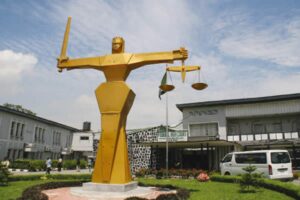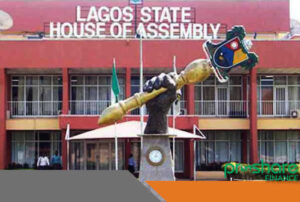The gaming Industry in Nigeria has demonstrated great potential and was set to become a great source of revenue generation for the government outside of Oil & Gas; however, the overlap in the regulation and taxation of the industry at both federal and state level, is not just becoming exhausting for the operators, but its threatening to inhibit further growth and development in the gaming sphere, as a whole.
The contradictory Judgments emanating from the judiciary with regard to this issue, is adding to the exhaustion and confusion.

Some of the Decided Court Cases
Over the years, there has been suits/counter suits and appeals, with regard to the bona fide regulator of the lottery/gaming industry in Nigeria.
In Edet V. Chagoon & anor (2008), the court held that the state assembly should legislate over gaming matters, as ‘pool betting and casino gaming do not appear in either Exclusive or Concurrent Legislative List and so the National Assembly lacks the power to legislate’.
In NLRC & NLTF. V. A.G. Lagos State (Suit No: FHC/ABJ/CS/642/07), Justice A.M. Liman while delivering judgment in 2009, held that the requirement that ‘a licensee under National Lottery Act 2005, should obtain a license under Lagos State Lotteries law, before they can operate their business in the state; is irregular, illegal, unconstitutional and invalid’. The state government was barred from interfering with the business operation of federal licensed operators.
The State government refused to obey this judgment, and the funny thing about this, is that the A.G of Lagos State as at the time of filing the suit in 2007, was Prof Yemi Osinbanjo; who is now the Vice President of the Federation, while the CEO of Lagos State Lotteries & Gaming Board, whose directives necessitated the court action, and who didn’t obey the court judgment afterwards, is now the DG of the National Lottery Regulatory Commission (NLRC).

The judgment in the aforementioned case, has not been successfully overturned by the respondent, and the matter of who is to regulate, is currently pending before the Supreme Court for determination.
In Western Lotto Ltd & Anor V. Lagos and Ogun State A. Gs & Ors., Justice Idris held that having been granted national permits, the state governments lack the powers, to stop the plaintiffs from carrying out their gaming business in their states.
As recent as August 2022, in the suit initiated by the Bookmakers Association of Nigeria; Justice I.N Oweibo of Lagos High Court, declared that the Federal Government should be the sole regulator of gaming business in Nigeria, as the constitution is clear on the position of lottery in the Exclusive list and thus the National Assembly can legislate on lottery matters.
Now the judgment of Nov 8, 2022, once again paints a whole different picture, with Justice Atinuke Ipaye declaring that the Federal Government lacks the power to legislate as lottery/gaming does not fall under Exclusive/Concurrent Legislative list.

Which Way Forward?
While we wait on the Supreme Court to fully grasp the need to put an end to this lingering issue, that is fast making the judiciary appear confused, let us look at these incidences from a different angle.

The state government while enacting these laws, set to levy further obligations on an already weighed down industry; should consider some exigent issues along-side the state government’s need to generate revenue.
- The fact that existing and new operators might be discouraged from making further investments in an environment that will be considered hostile, volatile and not profit enabling, which will then give rise to more illegal operators.
- There will be degradation of quality service to the consumers and increase in the non-fulfilment of financial obligations to the winners.
- It will definitely prevent accurate business planning, which will in turn forestall corporate growth and result in loss of revenue for both operators and the regulator (s).
- Multiple regulation/taxation will inevitably lead to rapid business losses, and fatigue’ player dissatisfaction. Furthermore, the threat of arbitrary business closures, destruction of operator’s properties (terminals) and arrest of agents, will only foster not just a hindrance to economic development, but further arbitrariness on the part of an over levied industry/operators

Conclusion
While it is acknowledged that the state governments have right to enact laws to foster revenue generation, there is need for the state and federal government in the matter of the gaming industry, to identify where their functions and regulatory powers overlap, and possibly execute a Memorandum of Understanding that will address the issue of multiple regulation/taxation.
This alliance will go a long way, to help ensure the continuous growth of the industry, and the government (s) in turn will reap maximum benefit; bearing in mind that when a fertile cow is over milked, without regard to its health, there will come a time when it will either stop producing milk or die off completely.






